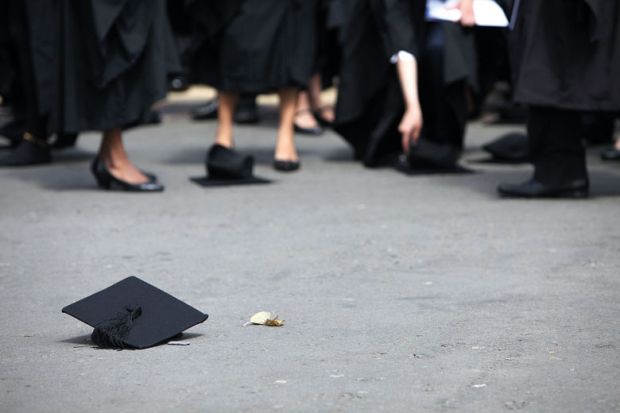England’s higher education regulator has been warned that the departure of its designated quality body (DQB) means it faces losing expertise and credibility just as it attempts to take a more interventionist approach.
The Quality Assurance Agency for Higher Education’s (QAA) decision to relinquish its long-standing role in the English system has raised “fundamental questions” about whether the Office for Students (OfS) can continue with its new strategy for regulation, according to Paul Ashwin, professor of higher education at Lancaster University.
He said the move by the QAA – taken because aspects of the OfS’ approach did not comply with European standards – has “very worrying consequences” for the regulator as it “represents a further and significant loss of expertise in its role”.
The OfS has announced it is switching to a more enforcement-led approach – as outlined in its 2022-2025 strategy – and has also indicated it will intervene on a wider range of issues, Professor Ashwin noted.
“The big concern in relation to the OfS is that at the same time as being more interventionist…it has lost a great deal of expertise in terms of changes to its staff and to the organisations it works with,” he said, adding that its credibility as a regulator could be “seriously undermined”.
Steve Clayton, speaking on behalf of the Association of Heads of University Administration, agreed that the QAA’s announcement “raises more questions than answers” both in the immediate term, about what will happen in March 2023 when England may well be without a DQB, and the longer term, with regard to the OfS’ strategy.
The Department for Education has announced it intends to start discussions on replacing the DQB but, Mr Clayton said, urgent clarity is needed on what will happen to the areas the QAA was responsible for, such as the process and timetable for providers seeking degree-awarding powers.
He pointed out that the OfS’ publication of its response to the consultation on student outcomes and the announcement that the new conditions will come into effect on 3 October show that it appears to be undeterred in seeing through plans that could see it engage with 20 providers on issues of quality this year, some of whom could be subjected to full assessments.
Such interventions would, however, require a clear and transparent framework and a skilled assessment team to avoid legal wrangling, Mr Clayton said.
Mary Stuart, emeritus vice-chancellor of the University of Lincoln, said the QAA’s decision, “while understandable and inevitable” is a “real disappointment and worry” for the sector as it has lost the expertise of an organisation with a “long and highly respected international reputation”.
“Any new DQB will need to build that reputation from scratch, which could create considerable uncertainty over the next few years,” she added.
Mr Clayton said the QAA had “provided an internationally respected benchmark for UK HE’s quality and standards”, but in a few months' time England could be in a position whereby the qualifications awarded by providers will “no longer be within any internationally recognised system of quality assurance” and that “this may lead to issues of recognition of degrees awarded in England overseas over time”.
“Whether UK HE’s reputation alone will override such concerns remains to be seen,” he said, adding that “the brand position of UK HE must not be allowed to suffer because of this change”.
Register to continue
Why register?
- Registration is free and only takes a moment
- Once registered, you can read 3 articles a month
- Sign up for our newsletter
Subscribe
Or subscribe for unlimited access to:
- Unlimited access to news, views, insights & reviews
- Digital editions
- Digital access to THE’s university and college rankings analysis
Already registered or a current subscriber? Login








